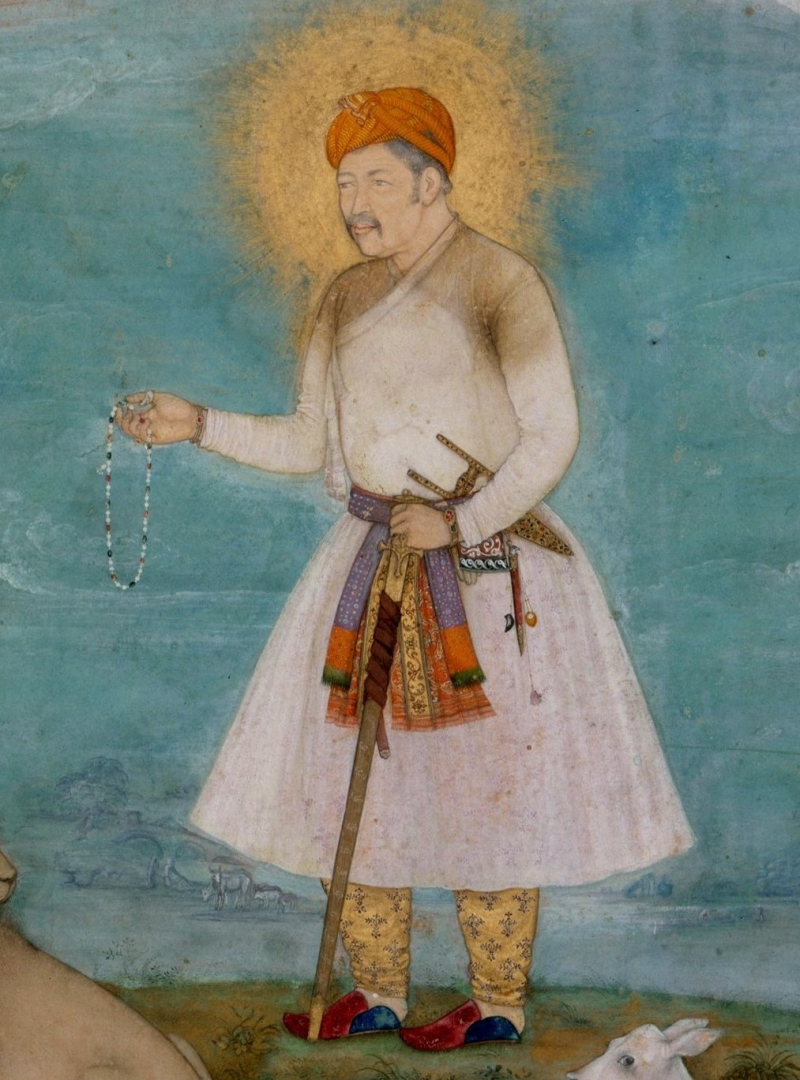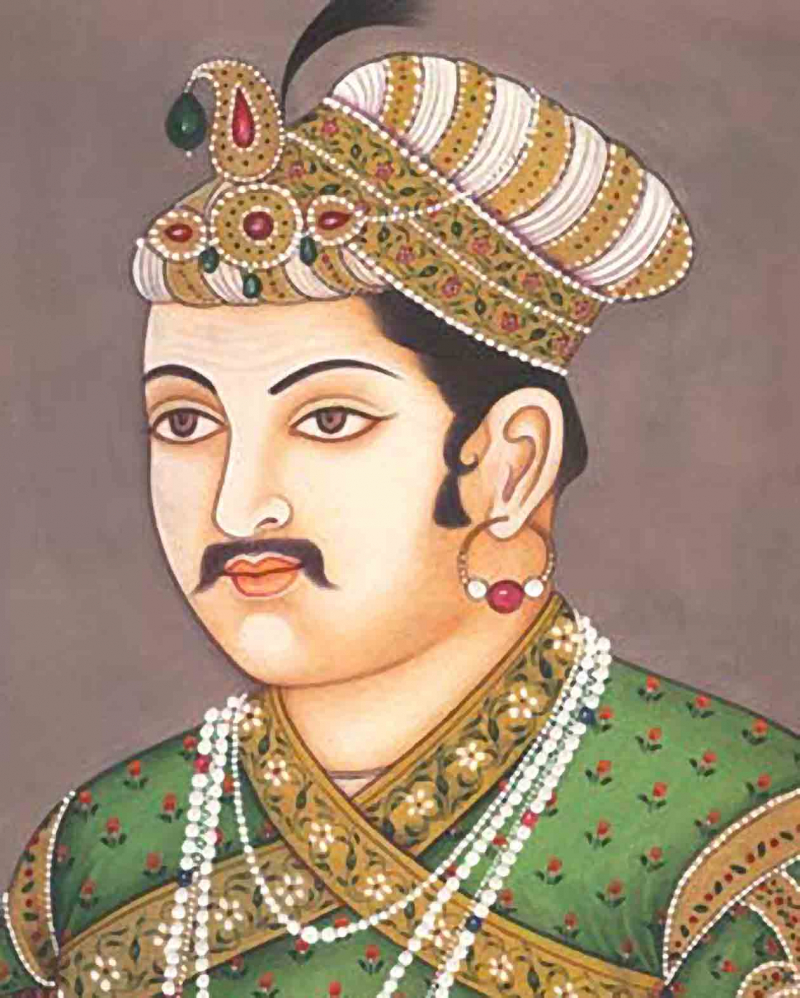Akbar

Akbar, Humayun's son (reigned 1556-1605), is widely regarded as the greatest of all Mughal emperors. When Akbar ascended to the throne, he inherited a shrunken empire that didn't extend much further than Punjab and the area around Delhi. He launched a series of military campaigns to expand his territory, and among his toughest opponents were the Rajputs, fierce warriors who ruled Rajputna (now Rajasthan). The Rajputs' main weakness was that they were divided by bitter rivalries. This allowed Akbar to deal with Rajput chiefs on an individual basis rather than as a united force. In 1568, he captured Chitor (now Chittaurgarh), and his remaining Rajput opponents quickly surrendered.
Akbar's strategy was to gain the support of his defeated adversaries by granting them the right to continue holding power in exchange for accepting him as emperor. Despite the great diversity of its peoples and religions, this strategy, along with Akbar's tolerant attitudes toward non-Muslims, ensuring a high degree of harmony in the empire. Akbar is also credited with creating the institutional frameworks that would mold the imperial ruling class for a number of generations. Along with his military prowess, Akbar also distinguished himself as a thoughtful and tolerant leader; he promoted interreligious understanding and—despite being illiterate himself—literature and the arts.







